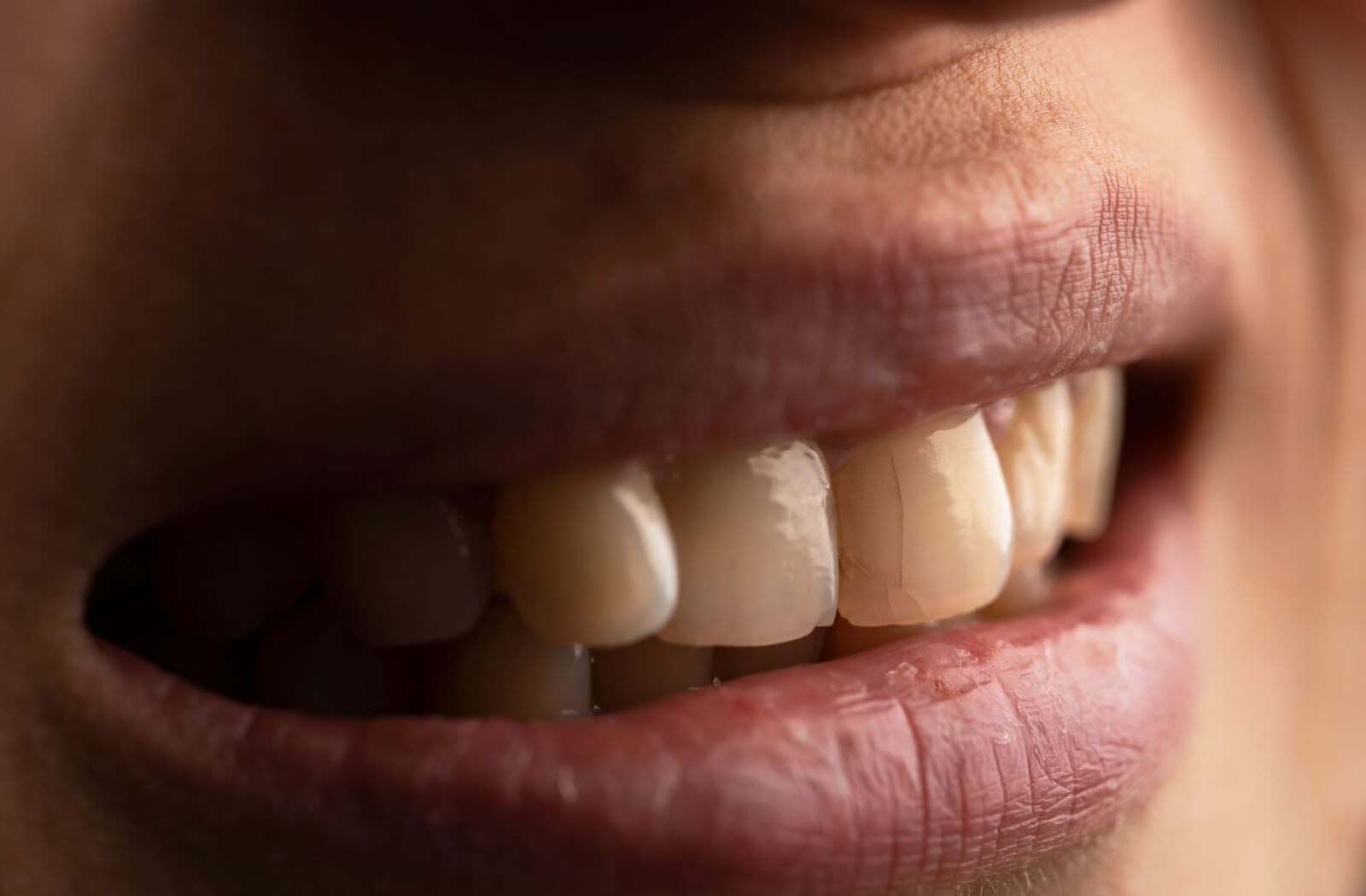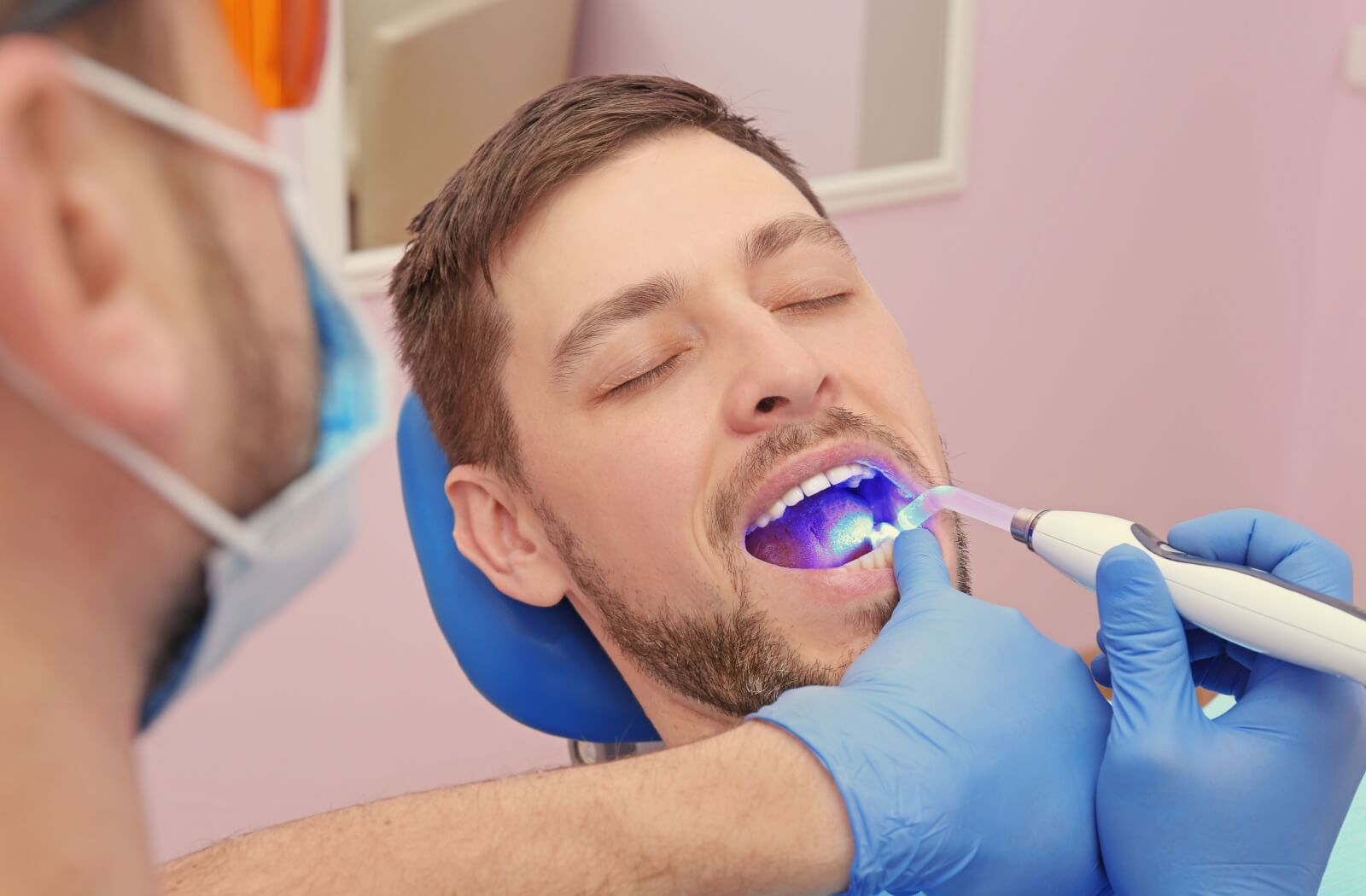
Many people experience confusion and discomfort when their teeth crack. Whether the crack occurs when biting into something hard or during teeth grinding, you may wonder if the tooth will heal by itself. The short answer is no, a cracked tooth cannot heal on its own.
If you crack a tooth, booking an appointment with your dentist right away is essential. Depending on where the crack is and how bad it is, they may be able to repair it with a simple filling.
Understanding the Structure of a Tooth
It’s helpful to know the anatomy of teeth to better understand why a cracked tooth cannot heal on its own. A tooth consists of 4 layers, each serving a specific role. When a crack extends through these layers, the tooth’s natural healing mechanisms are insufficient to repair the damage completely.
Enamel
Enamel is the outermost layer of the tooth, a hard, protective shell that guards against daily wear and tear. While enamel is the hardest substance in the human body, it’s brittle and prone to cracking under extreme pressure or continual stress.
Dentin
Beneath the enamel lies the dentin, a porous layer that supports the enamel. Dentin contains microscopic tubules that lead to the pulp, making it more sensitive to external stimuli if the enamel is compromised.
Cementum
Cementum is a calcified layer that covers the roots of teeth, anchoring them securely to the jawbone via the periodontal ligament. It protects the root and plays a critical role in maintaining the stability of teeth throughout a person’s life.
Pulp
The pulp is at the tooth’s core and contains nerves, blood vessels, and connective tissue. It’s the tooth’s lifeline. For this reason, a crack that reaches the pulp can lead to pain and even infections if untreated.
Why Can't a Cracked Tooth Heal on Its Own?
Unfortunately, once a tooth is cracked, it cannot heal itself like bone or soft tissue. The human body can regenerate some gum tissue and even repair minor enamel imperfections, but it cannot close a crack or fuse the fractured pieces of a tooth back together.
Factors Affecting Healing or Treatment Success
While natural healing isn’t possible, certain factors can impact how well treatments can restore the function and integrity of a cracked tooth.
Size of the Crack
Small cracks, like craze lines (minute fractures in the enamel), may not require extensive treatment, but larger cracks can compromise the tooth’s structural stability.
Location of the Crack
A crack confined to the enamel is less concerning than 1 that reaches the dentin or pulp. Additionally, cracks in molars, which endure more pressure, may require sturdier treatment solutions like dental crowns.
Oral Hygiene
Maintaining excellent oral hygiene can slow the progression of bacterial infections within a crack, buying time before you see your dentist.
Your Bite
Certain bite patterns or habits, such as clenching and grinding (bruxism), can put more stress on cracked teeth and influence how effectively they can be treated.
If you’re unsure about the severity of your cracked tooth, schedule an appointment with your dentist sooner rather than later.
Treatment Options for a Cracked Tooth
Although teeth cannot heal themselves, various dental treatments are available to repair cracks, alleviate pain, and restore functionality.

Fillings or Bonding
These are ideal for minor cracks located in the enamel. A tooth-coloured composite resin is applied to seal the crack and prevent further damage.
Dental Crowns
For deeper cracks, a crown may be placed over the tooth to provide extra support and protect the tooth from further wear and tear. Crowns are often recommended for molars that endure higher pressure during chewing.
Root Canal Therapy
If a crack extends into the pulp, your dentist may perform a root canal to clean out infected tissue, seal the canal, and save the tooth. This process is often completed with a crown for added protection.
Extraction
Tooth extraction may be necessary if a crack goes below the bone level or the damage is too severe. While this is often a last resort, modern dentistry offers numerous options for tooth replacement, including dental implants and bridges.
Tips to Prevent Cracked Teeth
Prevention is always better than treatment. Here are some strategies to reduce the risk of cracking a tooth:
- Avoid hard foods: Steer clear of chewing ice, hard candies, or unpopped popcorn kernels.
- Wear a nightguard: If you grind your teeth, especially during sleep, invest in a custom mouthguard to protect your teeth.
- Don’t use teeth as tools: Avoid using your teeth to open packages or bite down on non-food items.
- Practice good oral hygiene: Brush twice daily, floss regularly, and visit your dentist for check-ups to maintain strong, healthy teeth.
Taking these precautions can significantly extend the lifespan of your natural teeth, reducing the likelihood of cracks or fractures.
Seek Professional Help for Cracked Teeth
If you have a cracked tooth, remember that early intervention is key. While a tooth cannot heal on its own, modern dentistry offers a wide range of effective treatments to restore your smile and protect your oral health. Ignoring the issue increases the risk of further damage, pain, and complications.Don’t wait for the problem to worsen. Schedule a visit with us at Dow’s Lake Dental to explore your treatment options and get your oral health back on track.